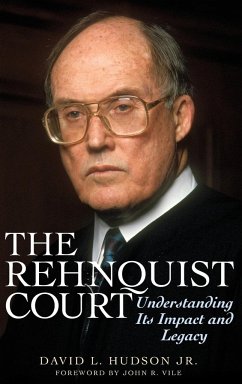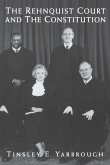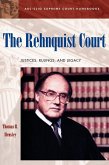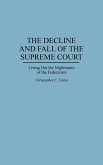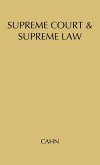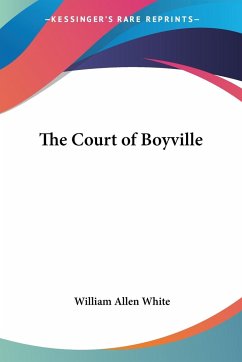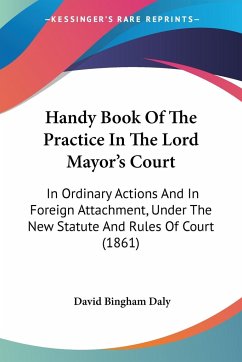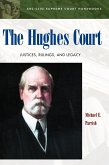For nearly 20 years, William Hubbs Rehnquist served as the 16th Chief Justice of the United States Supreme Court. During these two decades, the Court issued major decisions involving federalism, abortion, affirmative action, civil rights, privacy, and the 2000 presidential election. Throughout his tenure, Justice Rehnquist was conventionally perceived as a conservative, partly for the anti-civil rights memos he had written earlier in his career. He became a lightning rod for controversy during his confirmation hearings in 1972 for Associate Justice and again in 1986 when he became Chief Justice. Surprisingly, however, Hudson's balanced, nonpartisan examination of the Rehnquist Court and its personalities shows that Rehnquist's conservatism is quite mild compared to that of the ideological purity of Justices Clarence Thomas and Antonin Scalia, and that Rehnquist did an admirable job of playing moderator as Chief Justice, exhibiting sensitivity toward his colleagues.
Hinweis: Dieser Artikel kann nur an eine deutsche Lieferadresse ausgeliefert werden.
Hinweis: Dieser Artikel kann nur an eine deutsche Lieferadresse ausgeliefert werden.

